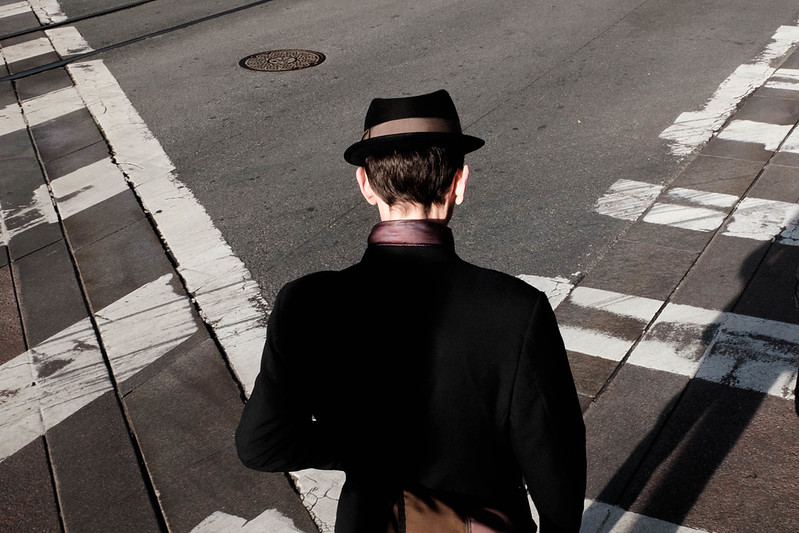That morning, I had just finished sending my latest short story to a few literary magazines and contests. I had also just realized (after the fact, as usual) that I had made an unforgiveable typo. I had written “staled emptiness.” And I was obsessing about the “d” before the emptiness, unwilling to let go.
Walking the streets of San Francisco. It was a sunny, nippy and casual Friday afternoon –in the programmed way the Financial District gets casual on Fridays. I was wearing red and black, like a romantic hero from a nineteenth century French novel, full of shit and unrestrained high hopes. I had taken BART from West Oakland, gotten off at Embarcadero Station and was now walking to meet my girlfriend at her office. We had arranged a date to edit (using the high-tech equipment at her disposal) the audio recording of the first ten minutes of my unpublished novel. It had to be no more than ten minutes. That was the Missouri Review Audio Contest’s main requirement.
I had originally thought of using just drums for the beginning and end of the recording. I thought an Elegguá track would do. Elegguá is the deity of transitions and crossroads in the Yoruba mythology. I thought of Elegguá because, since finishing this novel, I’ve been at a crossroads between resigned hopelessness and overly shy optimism about its future as an actual book. But if Elegguá was the right meta-literay background, the story about the novel’s narrator meeting the hottest transsexual mambo queen lip-synching diva in the annals of San Francisco (“la más chingona,” by all means) needed a more hummable Afro-Cuban opening –something like Jerry Gonzalez’ trumpet intro to “Hubo un lugar,” which is what I was humming while I walked up California Street to meet my fate, as the early-Friday-afternoon mood loosened up the passersby’s ties, the first beers of the day elicited the first weekend cheers, and the oblique glances people paid to each other on the street acquired a gingerly touch of Friday night flirtatiousness.
I had no idea the music I was carrying with me would be insufficient and that it would take another editing session to finish “La Más Chingona.” I mean most of the action in the story takes place inside this bluesy joint in downtown Oakland. How could I think of not using Joe Turner’s “Every Day I Have the Blues” and Dr. John’s “Only In It For the Money”? At that moment, however, I thought Jerry Gonzalez’ trumpet was more than plenty. The crisp, warm afternoon, the last one before a series of long and mercilessly stormy ones, had a serene, carefree beauty, like the immense dark eyes of a slim, bald woman typing away –probably her latest novel, I thought– at a table at Starbucks, her delicate features made even more delicate by her perfectly shaved head.
And I have to say the rest of the evening had the same graceful, calm, purposeful quality, as if I had accomplished something really good or at least promising, and nothing could bother me. So when later in the evening, my girlfriend and I met with two of our dearest friends for dinner and then the four of us went to the theater, I couldn’t believe how ridiculously generous I felt about the play’s stuffy long-windedness (English stuffiness to top it all) and about its white character’s obnoxious racism. ’Cause to see two white doctors do whatever they want with a black man’s psyche (just because they could) and get away with it, I certainly didn’t need to go to the theater.
